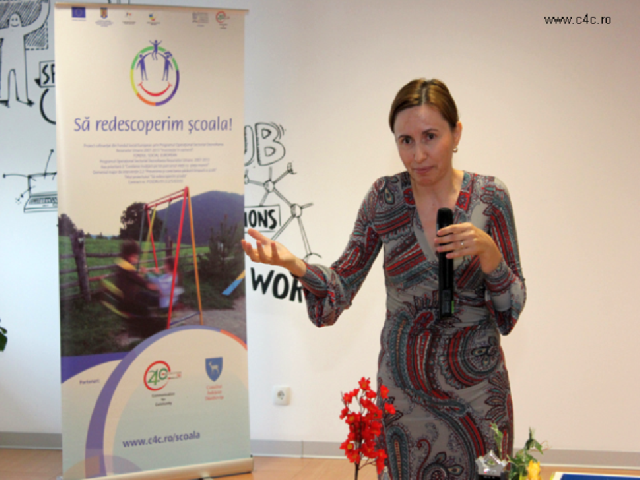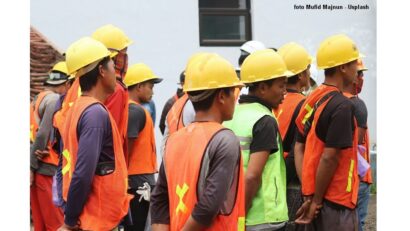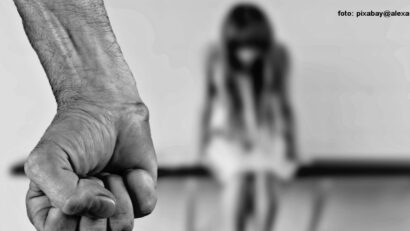How to be Different in Romanian Schools
Romanians get bombarded every day by e-mails advertising more and more sophisticated courses for gifted children, playing on parents’ wishful thinking and hopes that their children may be just that. For decades now, Romania has been boasting the exceptional results obtained by gifted Romanian children in international competitions. This has also been used as a justification for maintaining the current Romanian education system as it is, sweeping under the rug the ways in which it fails regular children. As for integrating children with disabilities, the school system has shown it is utterly unprepared. According to 2013 data from the General Directorate for Social Assistance and Child Protection, of the 72,700 children with disabilities, 24,100 attend public education, less than one third. Even if Romania has adopted all European legislation regarding protection for children and the disabled, committing to accommodating the latter in every way, actually doing so is taking way too long and leaves much to be desired.

România Internațional, 02.07.2014, 13:21
Romanians get bombarded every day by e-mails advertising more and more sophisticated courses for gifted children, playing on parents’ wishful thinking and hopes that their children may be just that. For decades now, Romania has been boasting the exceptional results obtained by gifted Romanian children in international competitions. This has also been used as a justification for maintaining the current Romanian education system as it is, sweeping under the rug the ways in which it fails regular children. As for integrating children with disabilities, the school system has shown it is utterly unprepared. According to 2013 data from the General Directorate for Social Assistance and Child Protection, of the 72,700 children with disabilities, 24,100 attend public education, less than one third. Even if Romania has adopted all European legislation regarding protection for children and the disabled, committing to accommodating the latter in every way, actually doing so is taking way too long and leaves much to be desired.
Fortunately, there are a lot of NGOs running programs to integrate disabled children. One such example is a project called ‘Let us rediscover school’. After running for three years, project manager Daniela Visoianu told us about its results:
“Right now we can report that 1860 kids took part in the camps we organized as part of the project, or in workshops, summer or Sunday schools. They all took part in these activities with their parents. The project is designed to prove to special needs children that they can do something with their mind, their hands, and to show them to their parents in a different light. We are happy to say that towards the end of the project, parents start seeing things differently.”
For education to be propitious for inclusion and life-long learning for all children and youth of all conditions, the project found ways to facilitate the school inclusion of disabled children. It brought in foreign experts to work with children and their parents, organized meetings with experts in caring for disabled children, and gathered the information thus obtained in a handbook. Daniela Visoianu tells us about it:
“Last year we launched a handbook for alternative education, talking in detail about children with special educational requirements, presenting activities and exercises for these children which are outside the curriculum. But these are methods that can be applied in any school framework, to improve the interaction between instructors and these kids, or which can be applied by parents working with their kids, outside the school. The handbook also includes presentations on the alternative pedagogical methods recognized in Romania. We have talked to experts from major centers, like those in Simeria or Corabia, working with children with the worst conditions, the worst diagnoses. They told us about their experience or about what kind of value alternative teaching methods can bring when interacting with special needs children. We are talking about the six educational alternatives in Romania recognized by the Ministry of Education in our schools. The best known is Step by Step. They are included in the handbook, and took part in our activities. We also have the Waldorf approach, curative pedagogy, the Jena plan, and the Montessori approach.”
Training instructors and education experts specializing in inclusion is another goal of the project team, and they have already trained 400 experts accredited by the National Qualification Authority, ready to apply the special methods they learned for children with special needs.
For the future, they plan to set up a so-called sensory room in Bucharest, to be available to people treating such children. Daniela Visoianu told us about it:
“If all goes well we will be able to inaugurate in April a sensory room in Bucharest. A sensory room is a special room for therapy with children with special needs. It has very soft furniture, which has embedded speakers and other sound or vibrating structures, since some special needs children feel sound through vibration. It also has lit panels allowing work in shadow or half shadow, for visually impaired children. All these stimuli in the room help children be better involved in the process run by the therapist.”






























